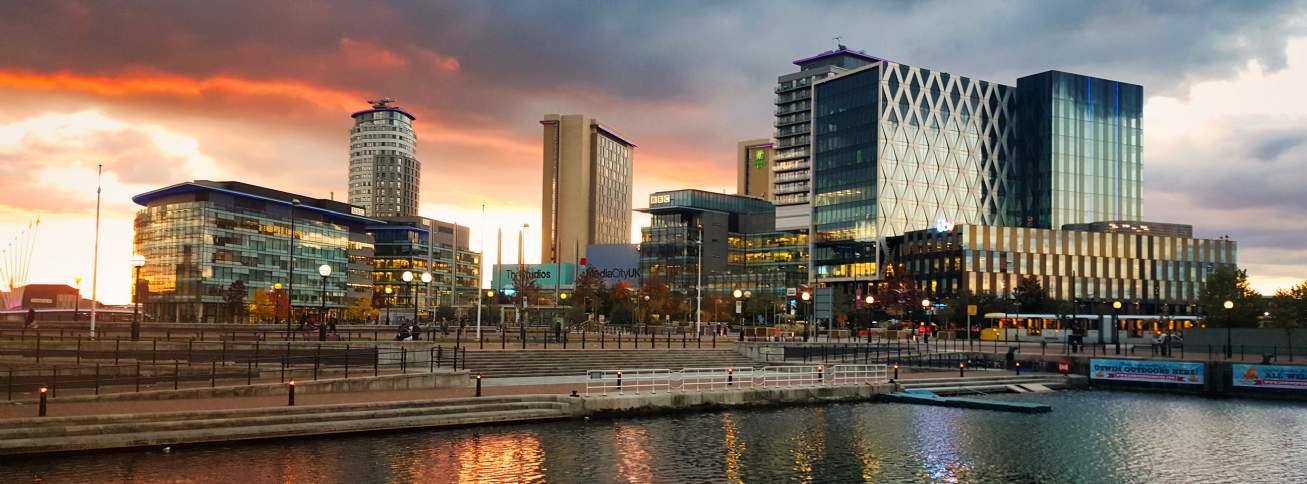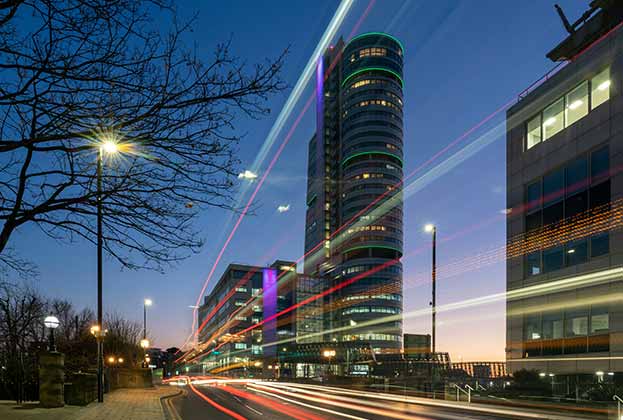Take-up from the ‘professional’ sector (traditional service lines that require a professional qualification such as accounting or law) has traditionally underpinned office sector demand across the UK, and has long been one of the most active sectors in the Manchester market.
However, over the last five years, demand has soared from ‘technology, media and telecom’ (TMT) businesses, dominating Manchester take-up. From 2017 to 2021, TMT occupiers acquired more space than any other sector, averaging 343,000 sq ft per year. In contrast, during this same period, the annual average for the ‘professional’ sector stood at just 135,000 sq ft, equating to only 11 per cent of total market demand.
This dip in ‘professional’ take-up unsurprisingly reached a low in 2020 and 2021, as the pandemic forced many occupiers within this sector to review their real estate requirements. However, Savills data from the past 12 months has signaled that these traditional office occupiers are ready to return to the Manchester market, with 2022 proving to be a significantly more active year. ‘Professional’ take-up reached 260,000 sq ft last year, making it once again the most active sector in Manchester at 22 per cent.
Demand was spread across 54 transactions, nearly double the number of deals seen pre-pandemic in 2019. What’s even more encouraging is that this level of activity looks set to continue, with Q1 of this year again seeing further strong take-up with ‘professional’ being the joint most active sector alongside TMT (both accounting for 24 per cent of demand) in Manchester. 16 ‘professional’ transactions completed in the first quarter, making it the most active Q1 that Savills has on record for the sector, with key deals including law firm Freeths taking 10,764 sq ft of Grade A space at 100 Barbirolli, and management consultant Teneo acquiring nearly 5,000 sq ft at 11 York Street.
So how will this resurgence in demand impact the market moving forwards?
The historic data shows that ‘professional’ occupiers are more likely to demand a better quality of space, with 59 per cent of their take-up over the past five years being for Grade A space, compared to 42 per cent for the whole market over the same period. Therefore, with availability of prime space in Manchester standing at just 520,000 sq ft (equating to just one year of supply), we are likely to see increasing pressure on these already limited prime opportunities moving forwards.
In response to this, landlords and developers are faced with a task to continue to deliver this best-in-class space, driven by quality amenities and robust ESG credentials, to satisfy the demand from the ‘professional’sector in this increasingly competitive labour market. There is currently just 815,000 sq ft of space under construction in Manchester, due to be delivered between now and 2025, with the longer-term development pipeline remaining uncertain based on current market conditions. If further space can be delivered, there is significant potential to unlock up to 16 per cent rental growth over the next five years, boosting the income for building owners and further bolstering Manchester as a leading office location.

-impact-the-office-sector(1).jpg)

.jpg)






